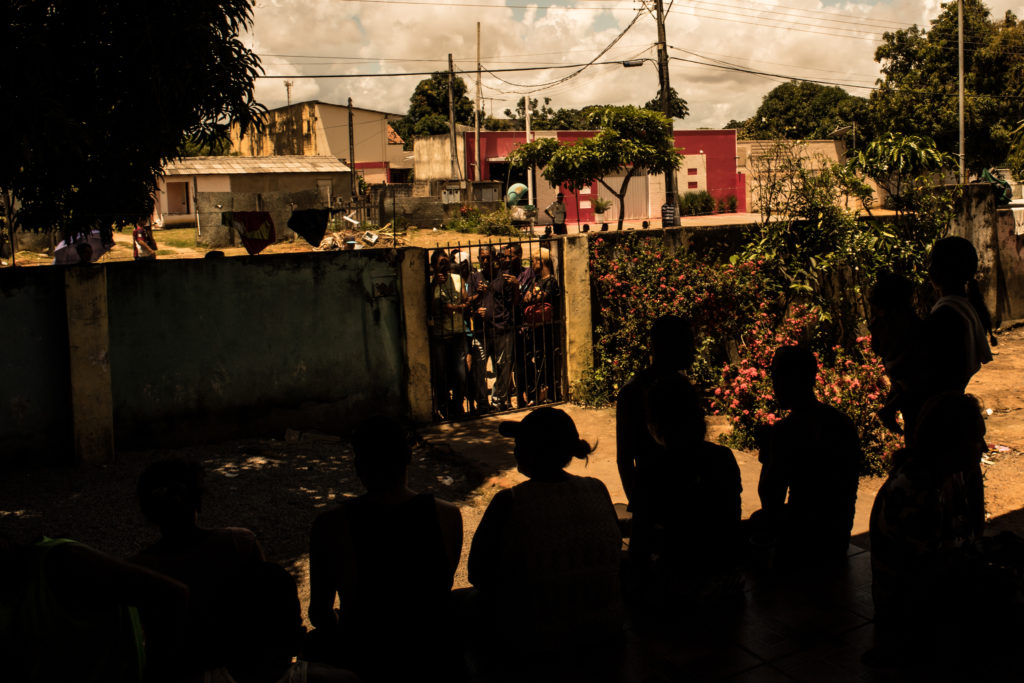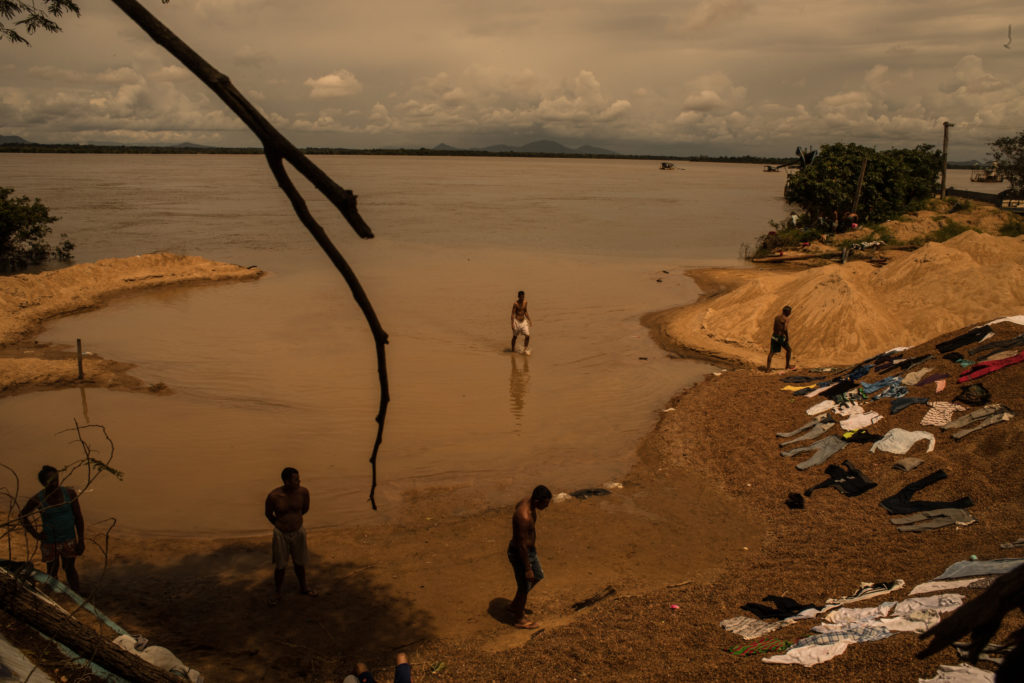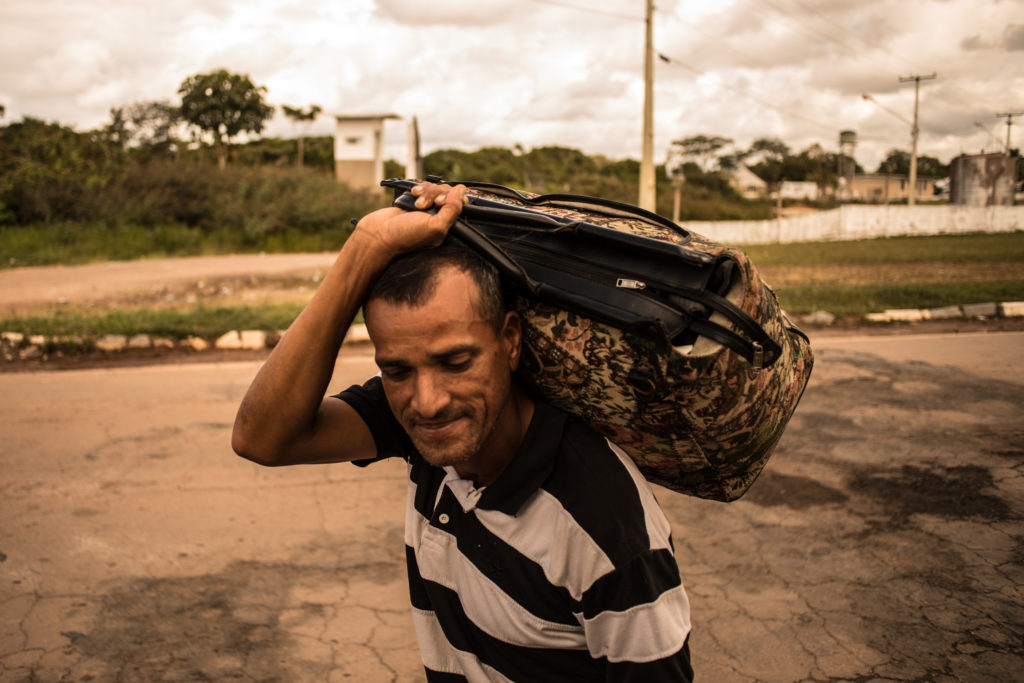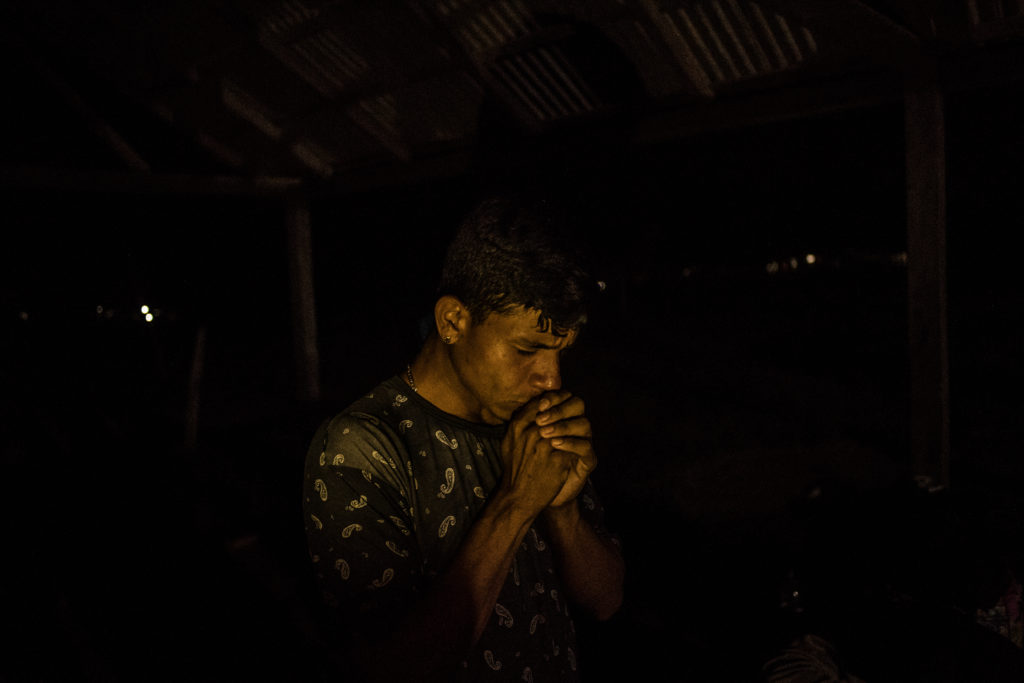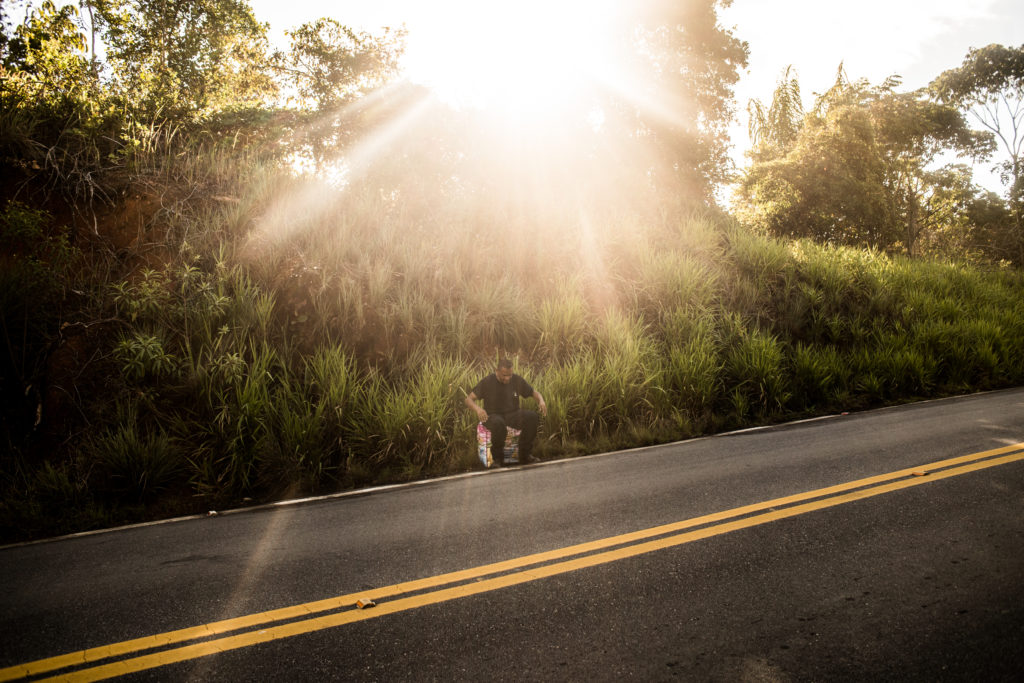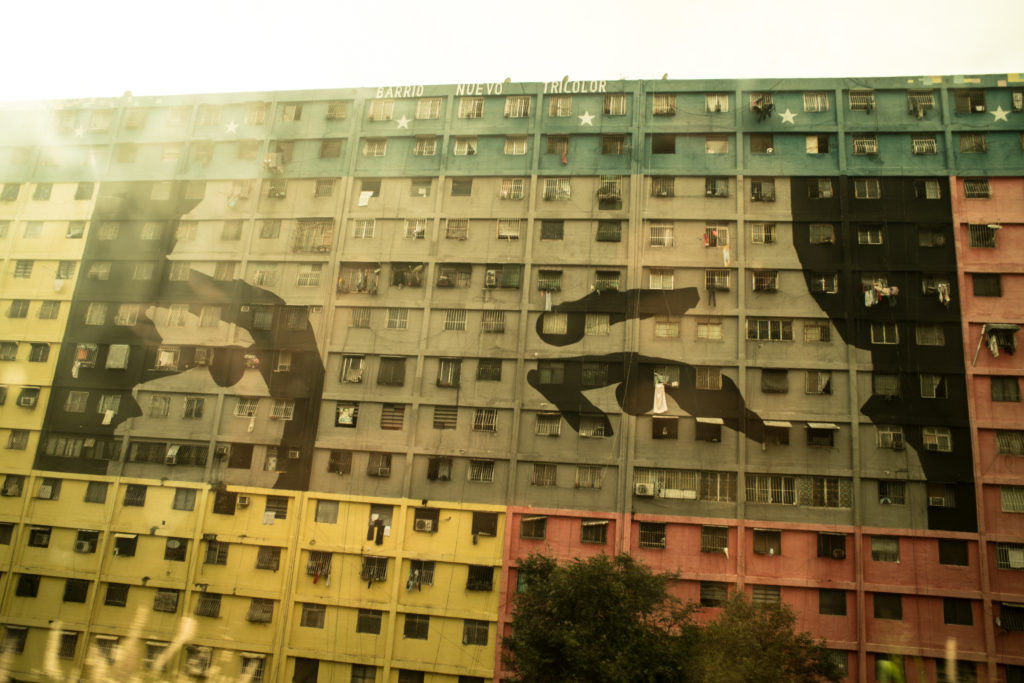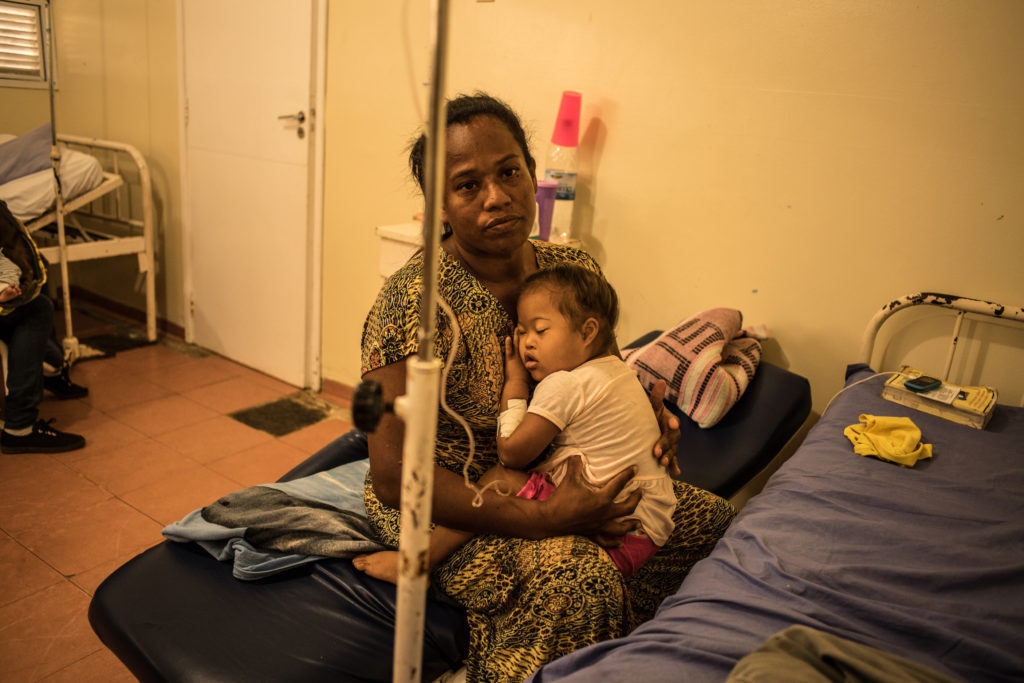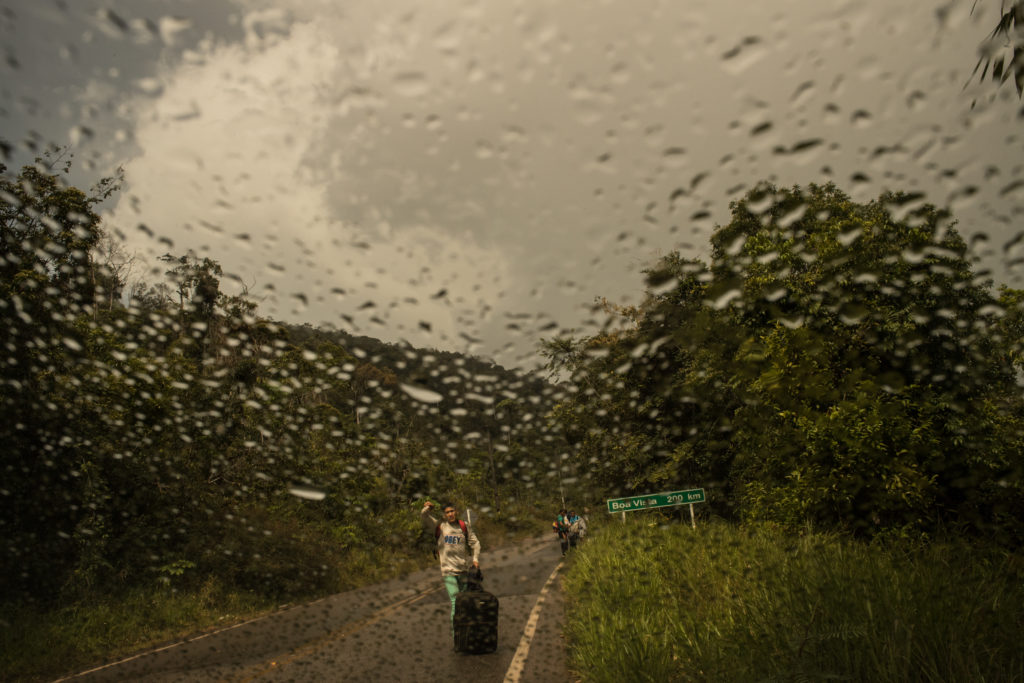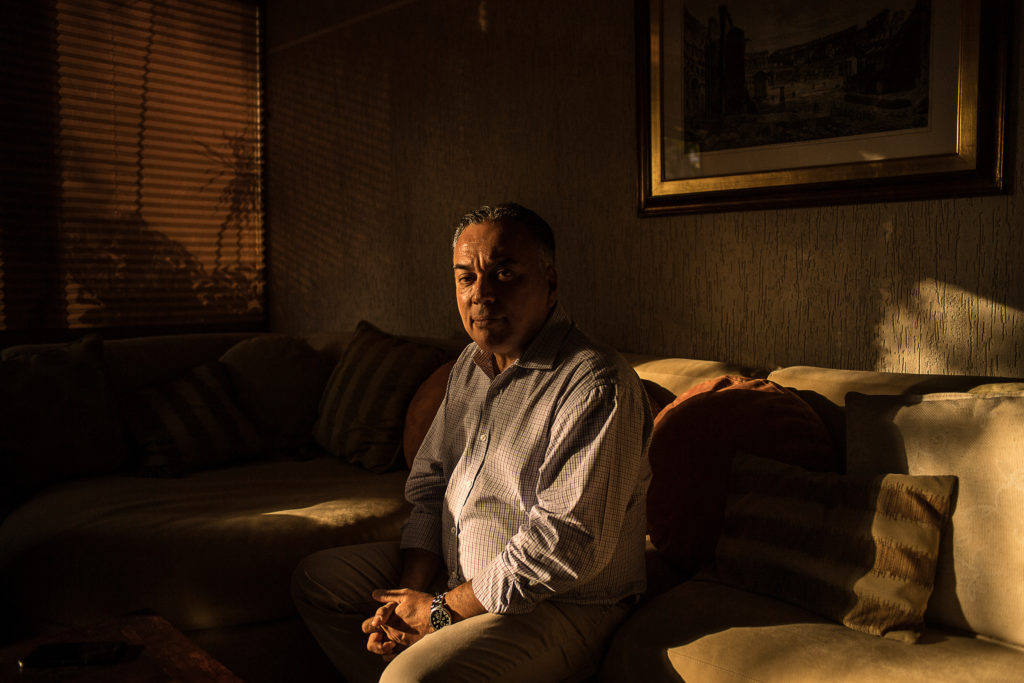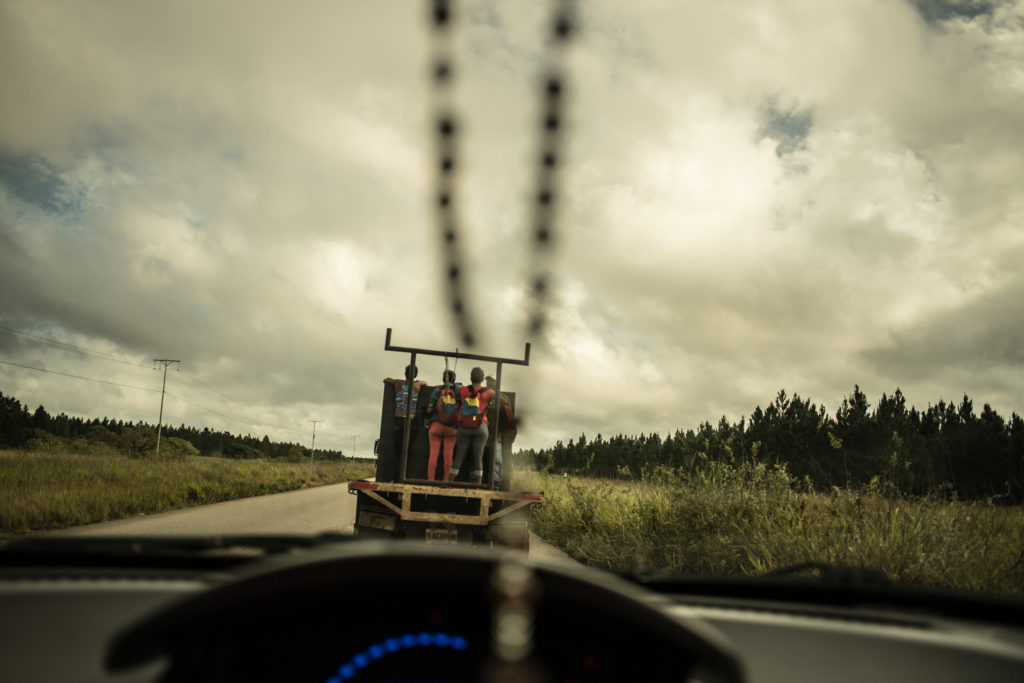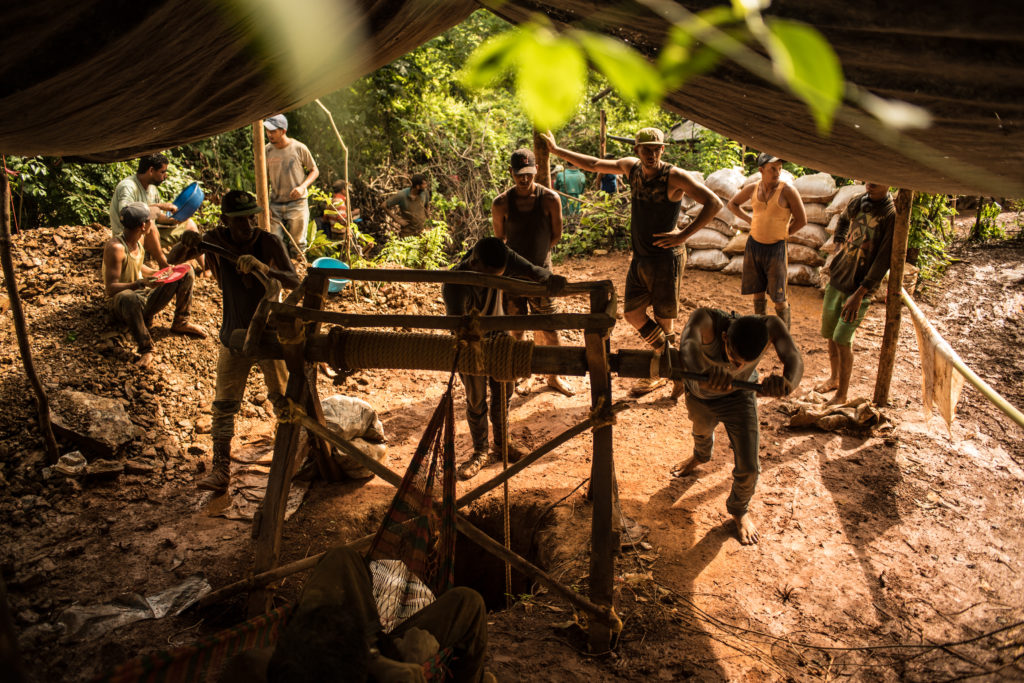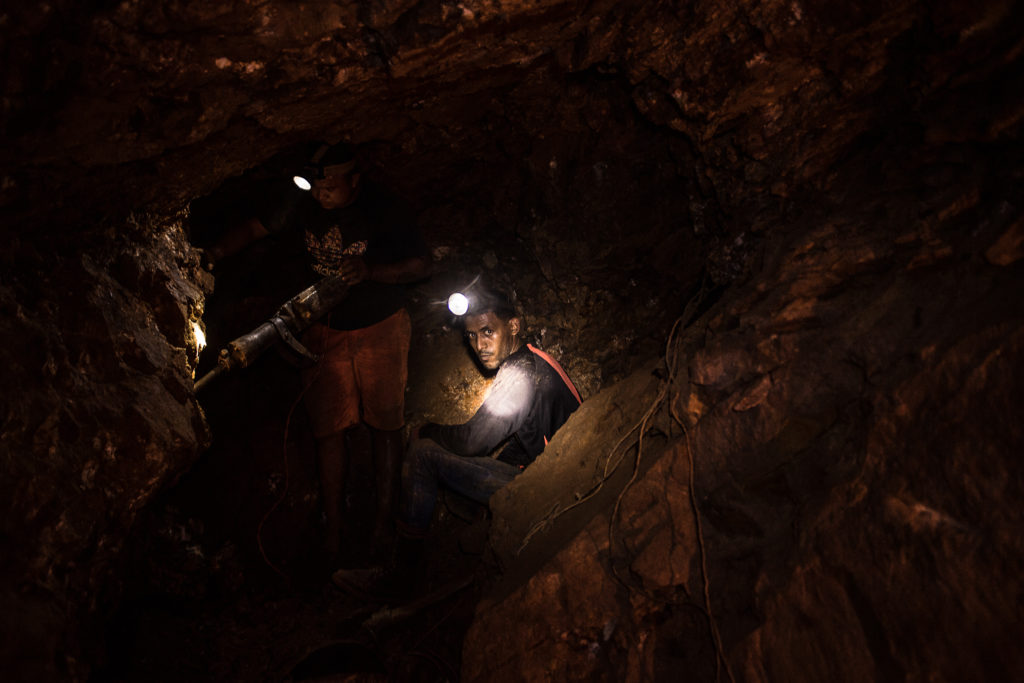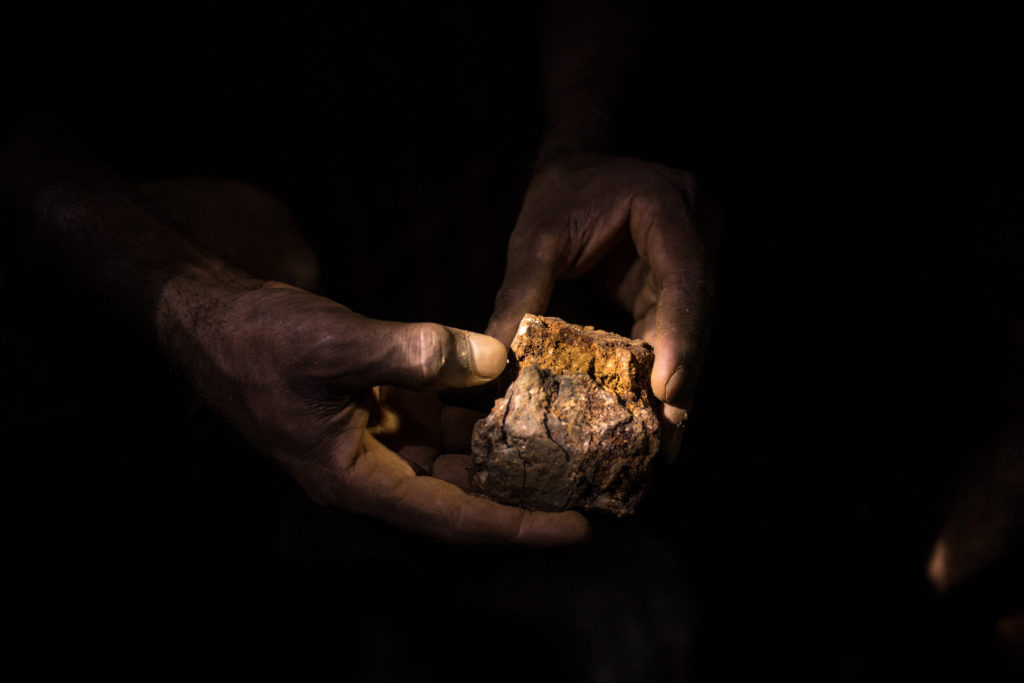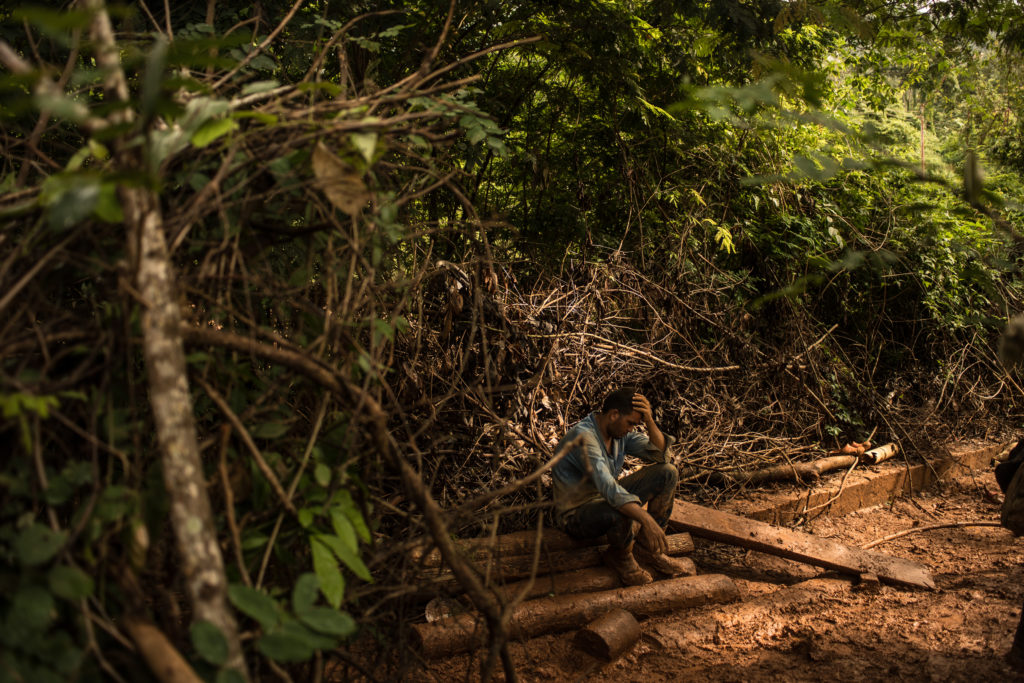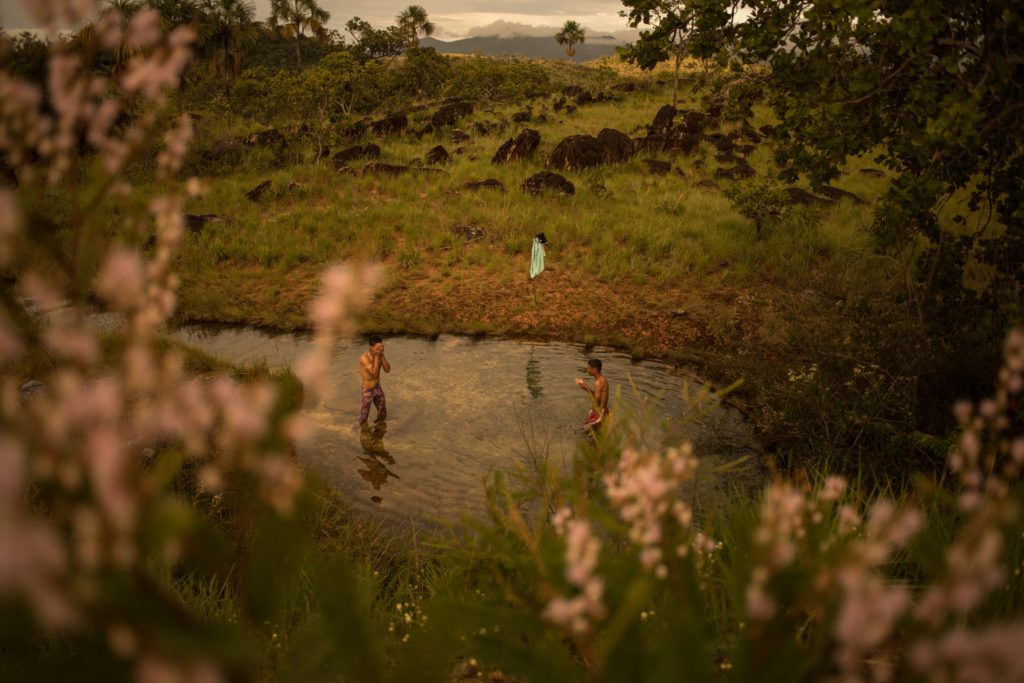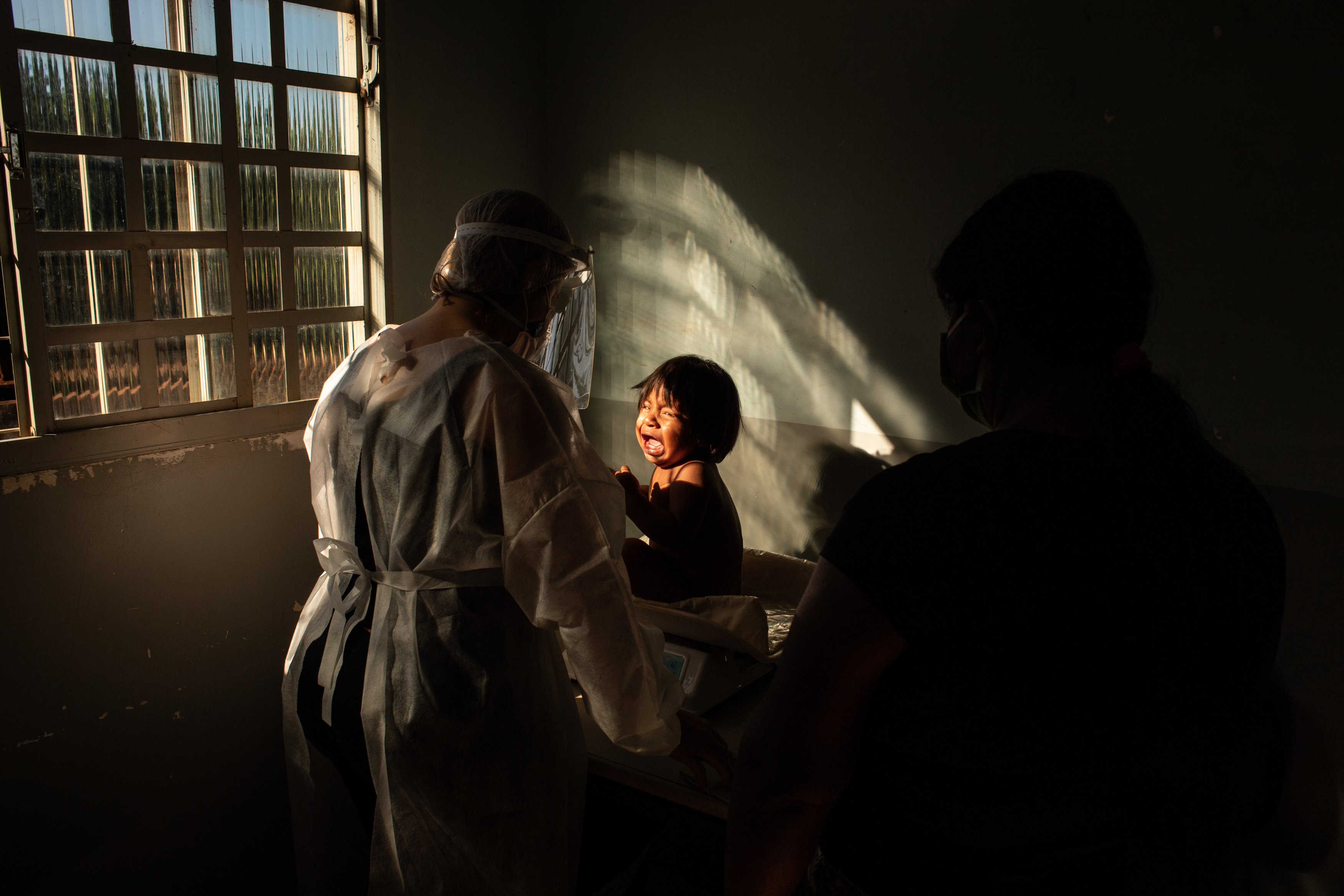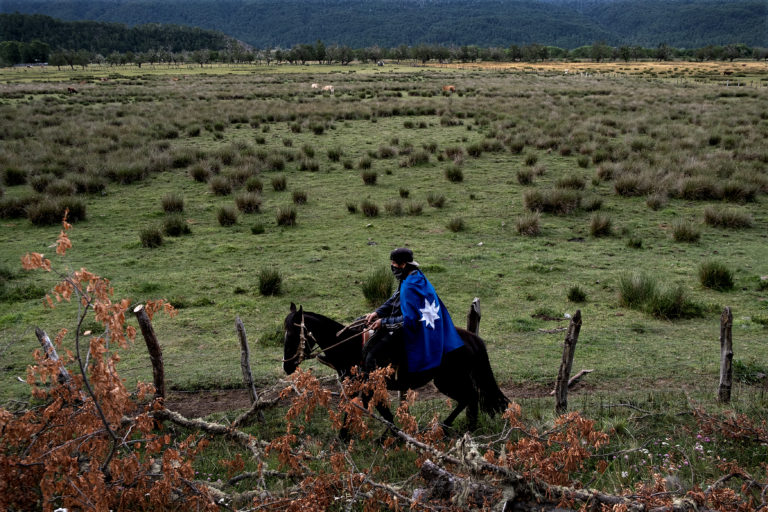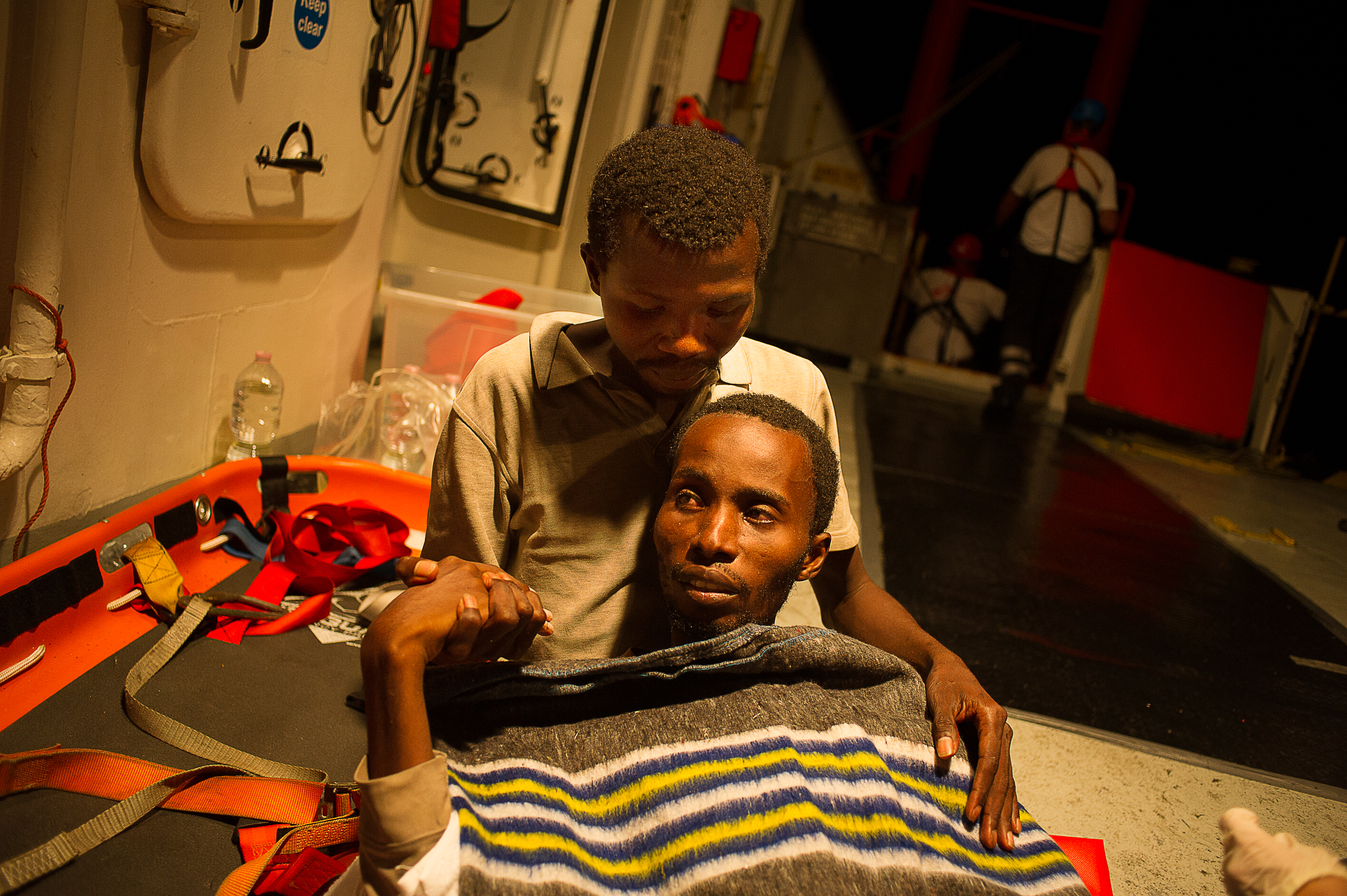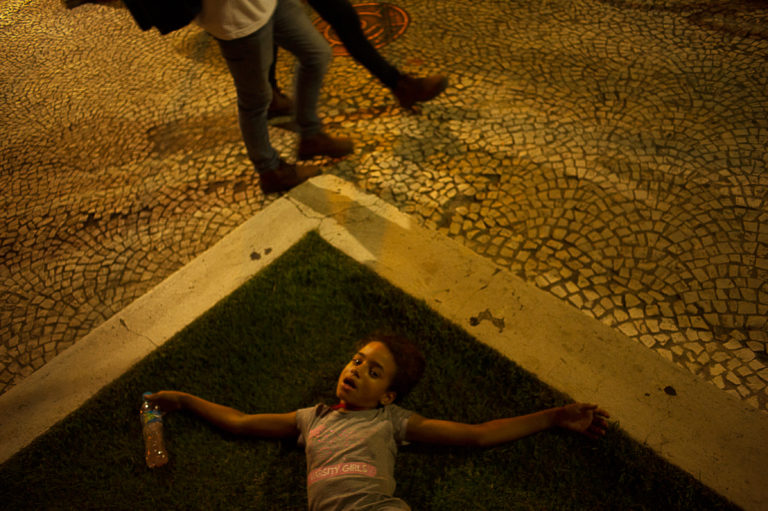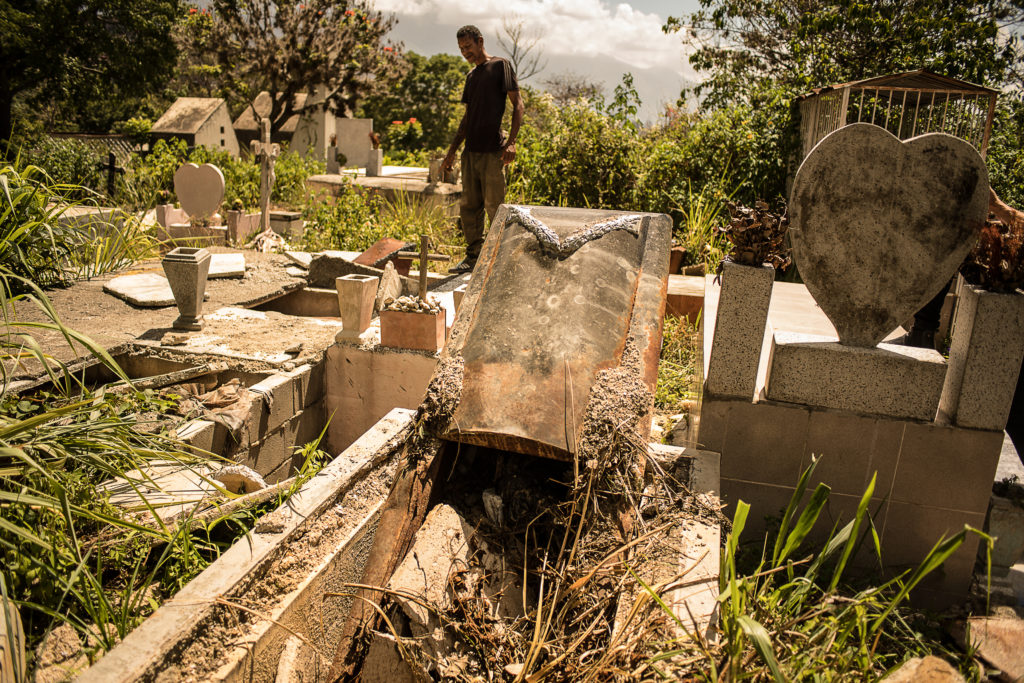
The "Cementerio del Sur" in the south area of Caracas, surrounded by several of the city's slums, is the oldest cemetery in the Venezuelan capital where the remains of the first Venezuelan president Joaquín Crespo and his family were displayed in a mausoleum. The cemetery has been practically abandoned by the authorities and most its tombs and the presidential mausoleum have been profaned by criminals looking for jewellery and other valuable itens hurried with the bodies.
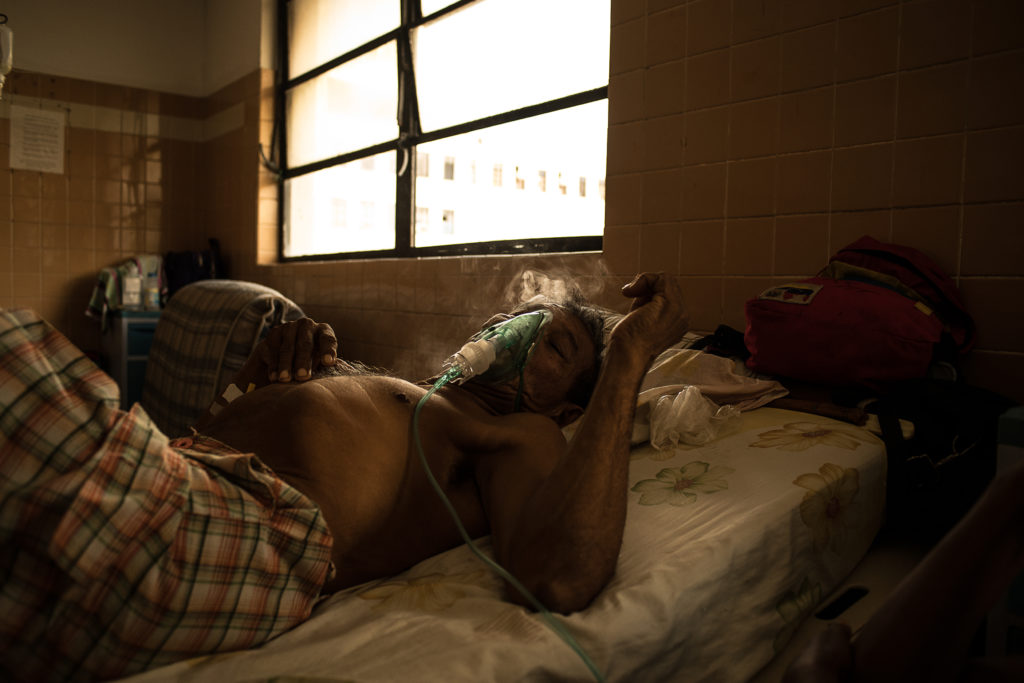
The Ruiz y Paez hospital in Ciudad Bolivar, the capital of the South Eastern Venezuelan State of Bolivar, is the main hospital in the region. The hospital's infra structure have been deteriorating with the economical and political crises the country is suffering and employees are unable to offer patients the most basic treatments due the lack of medicaments and medical equipment.
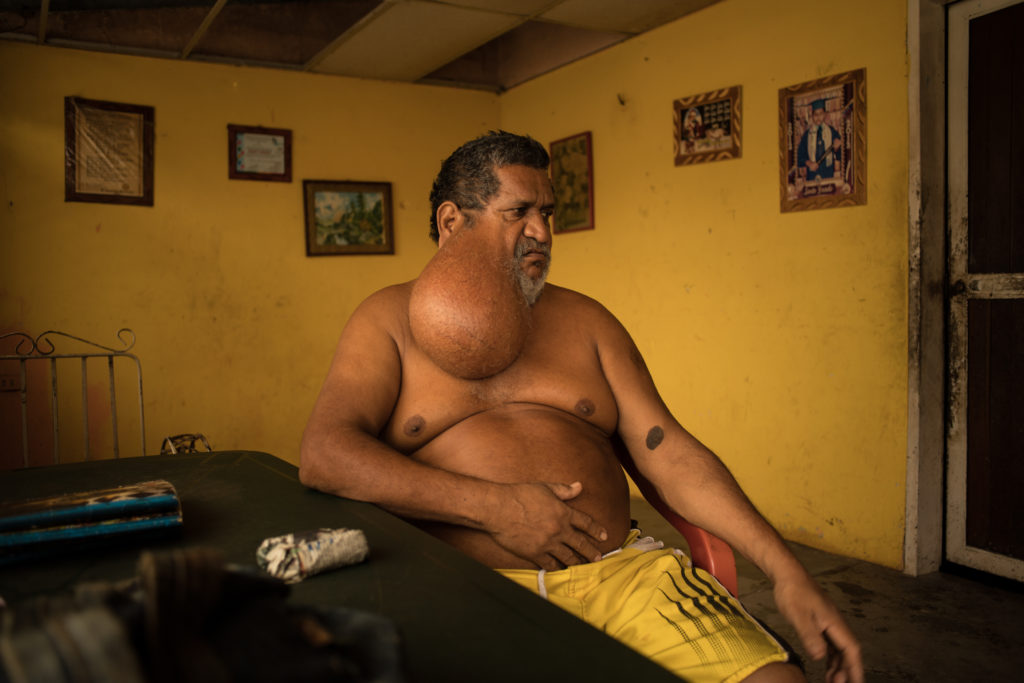
a diesel engine mechanic working in the gold mines around the "Orinoco Arco Minero", suffers from a pulmonar infection that affects his imune defense system leaving him exposed to several kind of diseases. For 12 years he has been living with infection in his face that could be easily treated if the hospitals had the means to offer the surgery he needs. He has been frequently visiting a local hospital in his neighbourhood in the city of Tumeremo, some 900km southeast from the capital Caracas, a hospital driven by the Cuban Government.
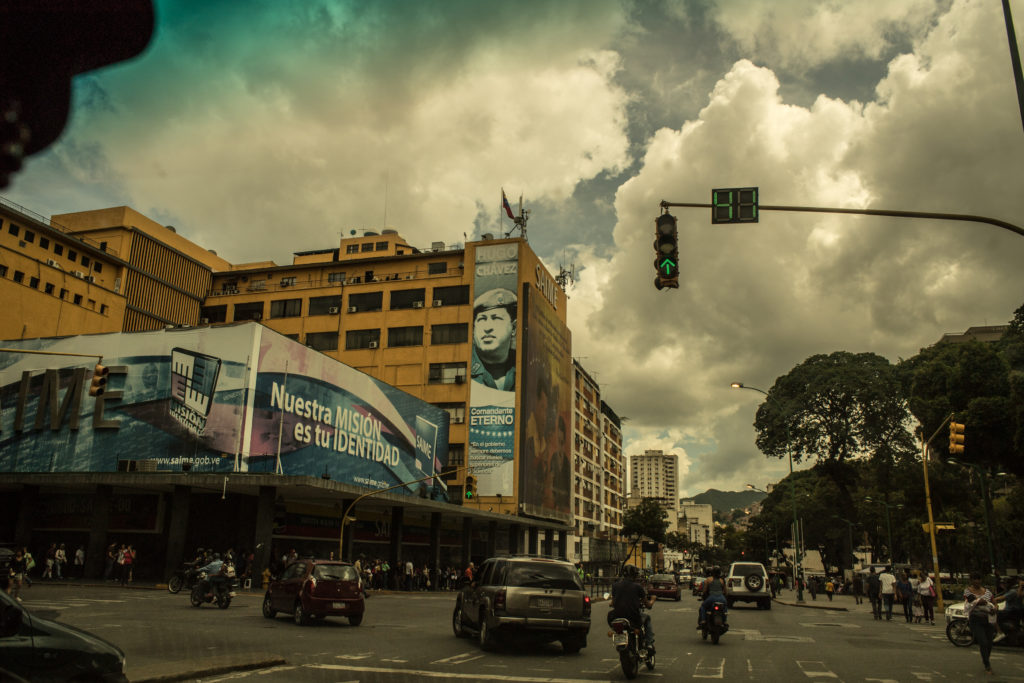
A poster of Hugo Chavez in a government building in Caracas down town. The "Chavismo" is a living ideology among most Venezuelans. Many are today against the government of Nicolas Maduro seeing him as a betrayer of the original Chavismo experienced during the years when Hugo Chavez could finance his populist policies using the heavy revenues of oil sales.
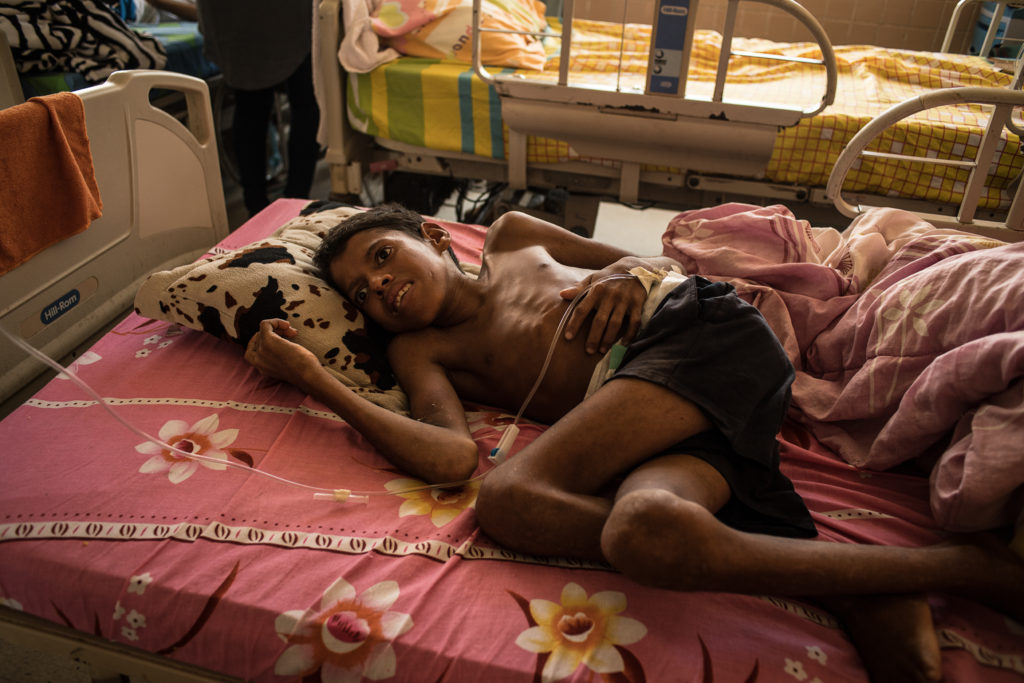
The Ruiz y Paez hospital in Ciudad Bolivar, the capital of the South Eastern Venezuelan State of Bolivar, is the main hospital in the region. The hospital's infra structure have been deteriorating with the economical and political crises the country is suffering and employees are unable to offer patients the most basic treatments due the lack of medicaments and medical equipment.
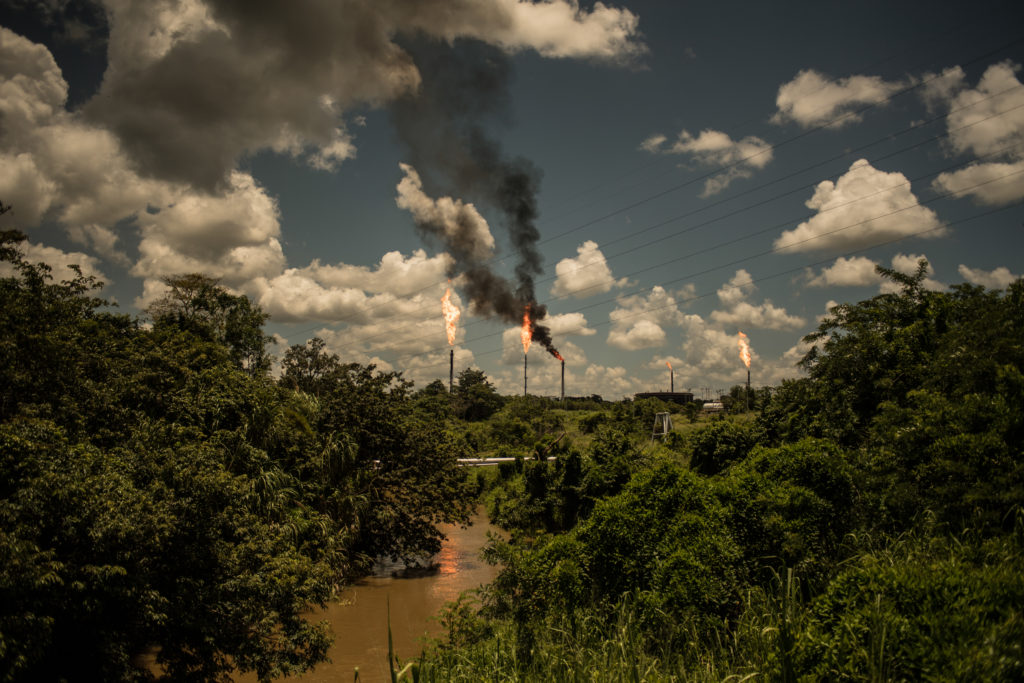
An oil refinery around the city of Maturin, 500 km east from the Venezuelan capital Caracas. Venezuela has the world's largest oil reserves with 297 billion barrels proven to existed and yet, the country's crude oil production fell drastically in the last 4 years, according to figures released by OPEC.
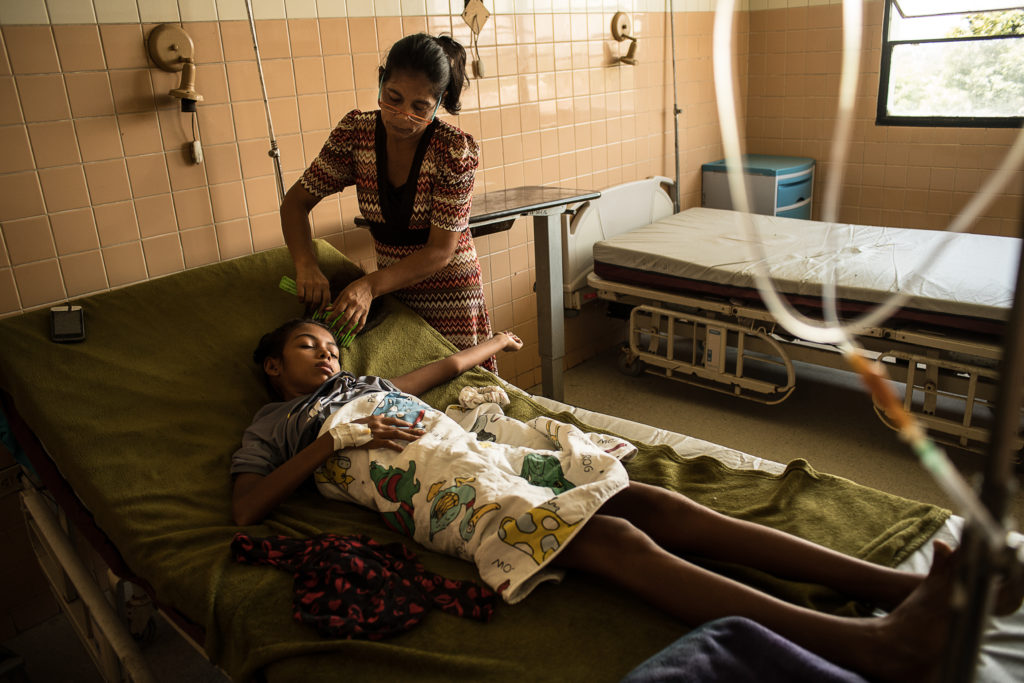
The Ruiz y Paez hospital in Ciudad Bolivar, the capital of the South Eastern Venezuelan State of Bolivar, is the main hospital in the region. The hospital's infra structure have been deteriorating with the economical and political crises the country is suffering and employees are unable to offer patients the most basic treatments due the lack of medicaments and medical equipment.
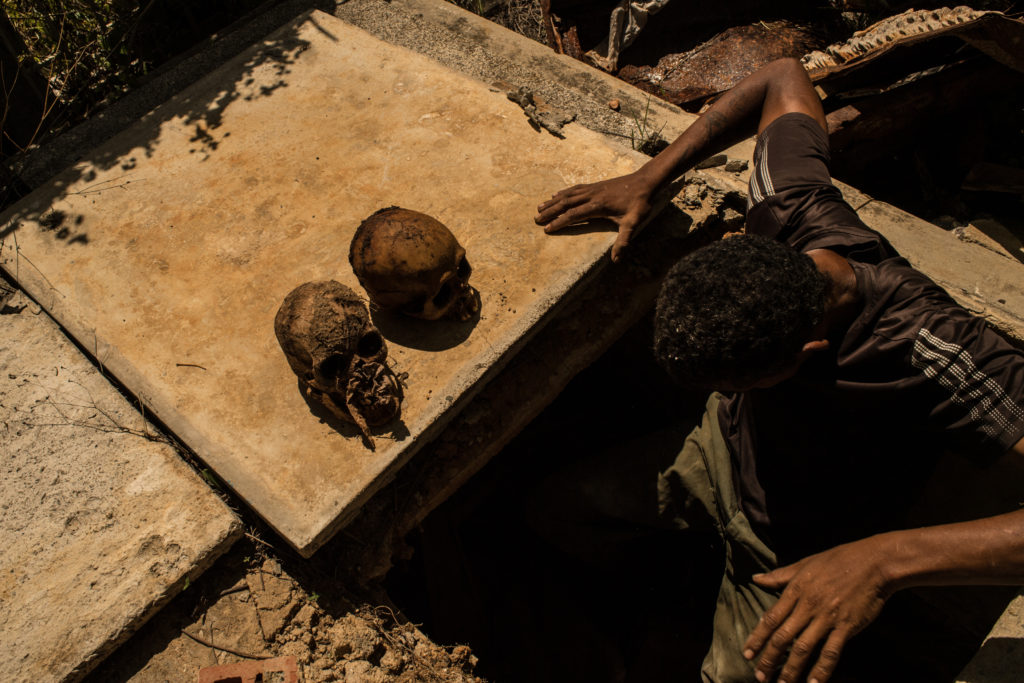
The "Cementerio del Sur" in the south area of Caracas, surrounded by several of the city's slums, is the oldest cemetery in the Venezuelan capital where the remains of the first Venezuelan president Joaquín Crespo and his family were displayed in a mausoleum. The cemetery has been practically abandoned by the authorities and most its tombs and the presidential mausoleum have been profaned by criminals looking for jewellery and other valuable itens hurried with the bodies.
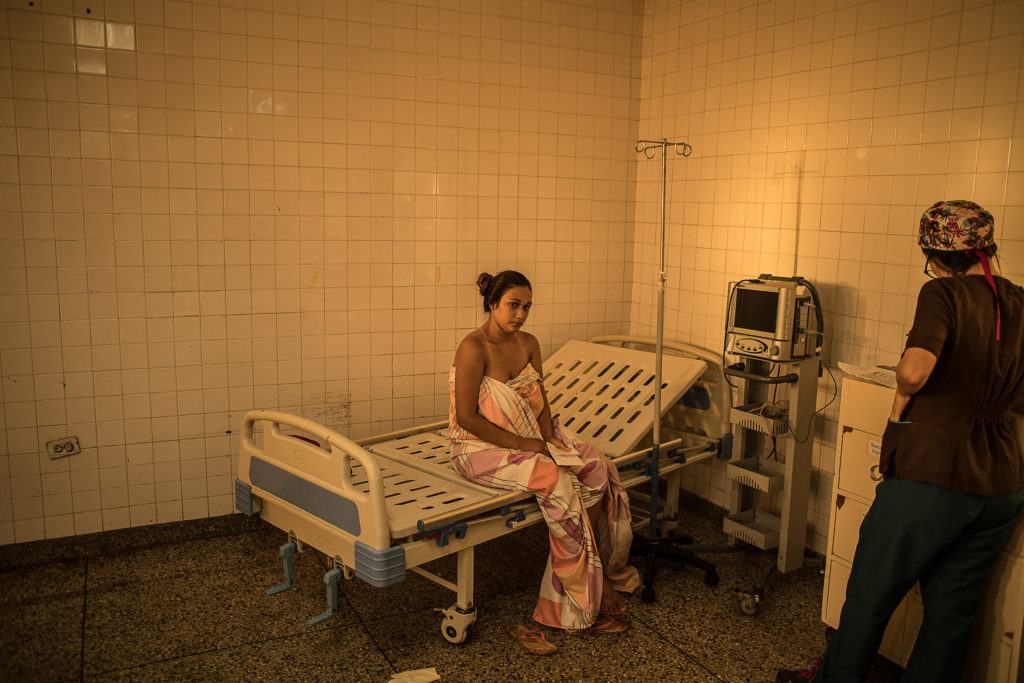
The Ruiz y Paez hospital in Ciudad Bolivar, the capital of the South Eastern Venezuelan State of Bolivar, is the main hospital in the region. The hospital's infra structure have been deteriorating with the economical and political crises the country is suffering and employees are unable to offer patients the most basic treatments due the lack of medicaments and medical equipment.
André has travelled across Venezuela and spent time on the boarder with Brazil in order to photograph the worst consequences of the worst economic and humanitarian crisis in Venezuela in its history: the poorest neighborhoods of Caracas, the hospital of Ciudad Bolivar, the migrants who cross the Venezuelan/Brazilian border, the mines of El Callao.
Since 2015, more than 1.6 million people have left the country. The health care system is collapsing, the shelves of the shops are empty, in the big cities there is rummaged among the waste looking for something to eat. According to the International Monetary Fund in 2018, the rate of inflation could exceed one million percent.
Tensions across South America have flared as the region’s biggest refugee crisis in recent history escalates. As anti-immigrant sentiment grows, other Latin American countries have begun tightening border controls. Peru will begin refusing entry to Venezuelan refugees traveling with just national I.D. cards, rather than passports, as of this Saturday. Ecuador adopted a similar rule, but it was annulled Friday by a judge who called for a broad government plan to deal with the influx.
With the collapse of the revenue of the state-owned oil company Pdvsa and an economy out of control, President Nicolás Maduro needed a new source of revenue. So in 2016 he authorized the extraction of gold and other metals in isolated areas on the border with Guyana.
The Orinoco mining district occupies 12 percent of all of Venezuela. According to the authorities, the area has gold deposits worth two hundred billion dollars. It is the second reserve in the world. Thousands of people, driven by the crisis, are looking for luck here. In a country with the most devalued currency in the world, a few grams of gold can make the difference between life and death. Doctors, drivers, lawyers and unemployed citizens dig side by side. Until recently unknown villages in the heart of the rainforest, such as Las Claritas, Tumeremo, El Callao and El Dorado, are now at the forefront of fight between criminal cartels, guerrillas and corrupt soldiers.
